Below you will find a list of Forex Brokers that offer different types of commodities for trading. In essence, a commodity is an economic good or crude used in the manufacture of a certain product or service. In the market, the asset is usually traded as a futures contract or CFD. The latter is better, since it has no expiration date and requires lower amount of investments. Most liquid and frequently traded commodities are metals, energies and softs. Most tradable precious metals are considered to be gold and silver. Most valuable energies – oil and gas. As for softs, this group usually includes a variety of agricultural goods (coffee, corn, soybean, wheat, sugar etc.) and livestock.

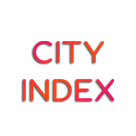 CityIndex (1983)
Leverage: up to 1:30
Deposit: from 10 USD
Spreads:
CityIndex (1983)
Leverage: up to 1:30
Deposit: from 10 USD
Spreads: 



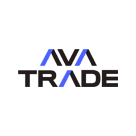 AvaTrade (2007)
Leverage: up to 1:400 *
Deposit: from 100 USD
Spreads:
AvaTrade (2007)
Leverage: up to 1:400 *
Deposit: from 100 USD
Spreads: 














 Grand Capital (2006)
Leverage: up to 1:1000
Deposit: from 10 USD
Spreads:
Grand Capital (2006)
Leverage: up to 1:1000
Deposit: from 10 USD
Spreads: 















 FxPro (2006)
Leverage: up to 1:500 *
Deposit: from 100 USD
Spreads:
FxPro (2006)
Leverage: up to 1:500 *
Deposit: from 100 USD
Spreads: 





 IC Markets (2007)
Leverage: up to 1:500 *
Deposit: from 200 USD
Spreads:
IC Markets (2007)
Leverage: up to 1:500 *
Deposit: from 200 USD
Spreads: 










 IG Markets (1974)
Leverage: up to 1:200 *
Deposit: from 300 USD
Spreads:
IG Markets (1974)
Leverage: up to 1:200 *
Deposit: from 300 USD
Spreads: 



 Forex.com (2001)
Leverage: up to 1:50 *
Deposit: from 100 USD
Spreads:
Forex.com (2001)
Leverage: up to 1:50 *
Deposit: from 100 USD
Spreads: 

 Dukascopy (1998)
Leverage: up to 1:200
Deposit: from 100 USD
Spreads:
Dukascopy (1998)
Leverage: up to 1:200
Deposit: from 100 USD
Spreads: 

 XM Group (2009)
Leverage: up to 1:1000 *
Deposit: from 5 USD
Spreads:
XM Group (2009)
Leverage: up to 1:1000 *
Deposit: from 5 USD
Spreads: 



 XTB Group (2004)
Leverage: up to 1:200
Deposit: from 250 USD
Spreads:
XTB Group (2004)
Leverage: up to 1:200
Deposit: from 250 USD
Spreads: 






 Global Prime (2010)
Leverage: up to 1:100
Deposit: from 200 AUD
Spreads:
Global Prime (2010)
Leverage: up to 1:100
Deposit: from 200 AUD
Spreads: 










 HQ Broker (2017)
Leverage: up to 1:400
Deposit: from 250 USD
Spreads:
HQ Broker (2017)
Leverage: up to 1:400
Deposit: from 250 USD
Spreads: 

 FP Markets (2005)
Leverage: up to 1:500 *
Deposit: from 100 AUD
Spreads:
FP Markets (2005)
Leverage: up to 1:500 *
Deposit: from 100 AUD
Spreads: 















 CMC Markets (1989)
Leverage: up to 1:500 *
Deposit: from 200 USD
Spreads:
CMC Markets (1989)
Leverage: up to 1:500 *
Deposit: from 200 USD
Spreads: 


 AAFX (2015)
Leverage: up to 1:2000
Deposit: from 100 USD
Spreads:
AAFX (2015)
Leverage: up to 1:2000
Deposit: from 100 USD
Spreads: 







 Plus500 (2008)
Leverage: up to 1:300
Deposit: from 100 USD
Spreads:
Plus500 (2008)
Leverage: up to 1:300
Deposit: from 100 USD
Spreads: 



 LiteFinance (2005)
Leverage: up to 1:1000
Deposit: from 50 USD
Spreads:
LiteFinance (2005)
Leverage: up to 1:1000
Deposit: from 50 USD
Spreads: 











 Windsor Brokers (1988)
Leverage: up to 1:500 *
Deposit: from 100 USD
Spreads:
Windsor Brokers (1988)
Leverage: up to 1:500 *
Deposit: from 100 USD
Spreads: 





 INGOT Brokers (2006)
Leverage: up to 1:3000
Deposit: from 10 USD
Spreads:
INGOT Brokers (2006)
Leverage: up to 1:3000
Deposit: from 10 USD
Spreads: 



 AMarkets (2007)
Leverage: up to 1:3000
Deposit: from 100 USD
Spreads:
AMarkets (2007)
Leverage: up to 1:3000
Deposit: from 100 USD
Spreads: 









 Amana Capital (2010)
Leverage: up to 1:500 *
Deposit: from 50 USD
Spreads:
Amana Capital (2010)
Leverage: up to 1:500 *
Deposit: from 50 USD
Spreads: 













 Pepperstone (2010)
Leverage: up to 1:200
Deposit: from 200 AUD
Spreads:
Pepperstone (2010)
Leverage: up to 1:200
Deposit: from 200 AUD
Spreads: 









 Markets.com (2008)
Leverage: up to 1:300 *
Deposit: from 100 USD
Spreads:
Markets.com (2008)
Leverage: up to 1:300 *
Deposit: from 100 USD
Spreads: 







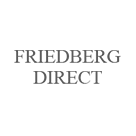 Friedberg Direct (2007)
Leverage: up to 1:50
Deposit: from 100 CAD
Spreads:
Friedberg Direct (2007)
Leverage: up to 1:50
Deposit: from 100 CAD
Spreads: 

 JustForex (2012)
Leverage: up to 1:3000
Deposit: from 1 USD
Spreads:
JustForex (2012)
Leverage: up to 1:3000
Deposit: from 1 USD
Spreads: 







 ActivTrades (2001)
Leverage: up to 1:400 *
Deposit: from 500 GBP
Spreads:
ActivTrades (2001)
Leverage: up to 1:400 *
Deposit: from 500 GBP
Spreads: 





 Infinox (2009)
Leverage: up to 1:1000
Deposit: from 50 USD
Spreads:
Infinox (2009)
Leverage: up to 1:1000
Deposit: from 50 USD
Spreads: 








 PrimeXBT (2018)
Leverage: up to 1:1000
Deposit: from 0.0001 BTC
Spreads:
PrimeXBT (2018)
Leverage: up to 1:1000
Deposit: from 0.0001 BTC
Spreads: 






 Capex (2016)
Leverage: up to 1:300 *
Deposit: from 1000 USD
Spreads:
Capex (2016)
Leverage: up to 1:300 *
Deposit: from 1000 USD
Spreads: 





 VantageFX (2009)
Leverage: up to 1:500
Deposit: from 200 USD
Spreads:
VantageFX (2009)
Leverage: up to 1:500
Deposit: from 200 USD
Spreads: 









 TeleTrade (2000)
Leverage: up to 1:500
Deposit: from 10 USD
Spreads:
TeleTrade (2000)
Leverage: up to 1:500
Deposit: from 10 USD
Spreads: 






 Oinvest (2018)
Leverage: up to 1:400
Deposit: from 250 USD
Spreads:
Oinvest (2018)
Leverage: up to 1:400
Deposit: from 250 USD
Spreads: 



 HFTrading (2018)
Leverage: up to 1:30
Deposit: from 250 USD
Spreads:
HFTrading (2018)
Leverage: up to 1:30
Deposit: from 250 USD
Spreads: 



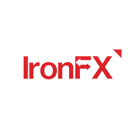 IronFX (2010)
Leverage: up to 1:2000
Deposit: from 100 USD
Spreads:
IronFX (2010)
Leverage: up to 1:2000
Deposit: from 100 USD
Spreads: 






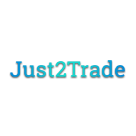 Just2Trade (2015)
Leverage: up to 1:30
Deposit: from 100 USD
Spreads:
Just2Trade (2015)
Leverage: up to 1:30
Deposit: from 100 USD
Spreads: 


















 IFC Markets (2006)
Leverage: up to 1:400
Deposit: from 1 USD
Spreads:
IFC Markets (2006)
Leverage: up to 1:400
Deposit: from 1 USD
Spreads: 







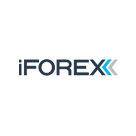 iForex (2012)
Leverage: up to 1:400 *
Deposit: from 100 USD
Spreads:
iForex (2012)
Leverage: up to 1:400 *
Deposit: from 100 USD
Spreads: 



 TMGM (2013)
Leverage: up to 1:500
Deposit: from 100 USD
Spreads:
TMGM (2013)
Leverage: up to 1:500
Deposit: from 100 USD
Spreads: 








 ETX Capital (1965)
Leverage: up to 1:30
Deposit: from 100 USD
Spreads:
ETX Capital (1965)
Leverage: up to 1:30
Deposit: from 100 USD
Spreads: 




 VT Markets (2016)
Leverage: up to 1:500
Deposit: from 50 USD
Spreads:
VT Markets (2016)
Leverage: up to 1:500
Deposit: from 50 USD
Spreads: 






 ALB (2017)
Leverage: up to 1:30
Deposit: from 200 USD
Spreads:
ALB (2017)
Leverage: up to 1:30
Deposit: from 200 USD
Spreads: 

 Pacific Union (2015)
Leverage: up to 1:500
Deposit: from 20 USD
Spreads:
Pacific Union (2015)
Leverage: up to 1:500
Deposit: from 20 USD
Spreads: 








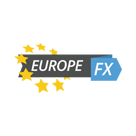 EuropeFX (2017)
Leverage: up to 1:30
Deposit: from 1000 EUR
Spreads:
EuropeFX (2017)
Leverage: up to 1:30
Deposit: from 1000 EUR
Spreads: 








 EasyMarkets (2001)
Leverage: up to 1:400
Deposit: from 25 USD
Spreads:
EasyMarkets (2001)
Leverage: up to 1:400
Deposit: from 25 USD
Spreads: 













 Libertex (1997)
Leverage: up to 1:1000 *
Deposit: from 10 USD
Spreads:
Libertex (1997)
Leverage: up to 1:1000 *
Deposit: from 10 USD
Spreads: 










 GANNMarkets (2010)
Leverage: up to 1:400
Deposit: from 100 USD
Spreads:
GANNMarkets (2010)
Leverage: up to 1:400
Deposit: from 100 USD
Spreads: 








 PU Prime (2015)
Leverage: up to 1:1000
Deposit: from 50 USD
Spreads:
PU Prime (2015)
Leverage: up to 1:1000
Deposit: from 50 USD
Spreads: 




 Fusion Markets (2010)
Leverage: up to 1:500
Deposit: from 20 AUD
Spreads:
Fusion Markets (2010)
Leverage: up to 1:500
Deposit: from 20 AUD
Spreads: 








 LCG (1996)
Leverage: up to 1:200
Deposit: from 100 USD
Spreads:
LCG (1996)
Leverage: up to 1:200
Deposit: from 100 USD
Spreads: 




 One Financial Markets (2007)
Leverage: up to 1:30
Deposit: from 250 USD
Spreads:
One Financial Markets (2007)
Leverage: up to 1:30
Deposit: from 250 USD
Spreads: 






 Capital.com (2016)
Leverage: up to 1:200
Deposit: from 20 USD
Spreads:
Capital.com (2016)
Leverage: up to 1:200
Deposit: from 20 USD
Spreads: 


 Scope Markets (2017)
Leverage: up to 1:1000
Deposit: from 50 USD
Spreads:
Scope Markets (2017)
Leverage: up to 1:1000
Deposit: from 50 USD
Spreads: 






 LegacyFx (2017)
Leverage: up to 1:200
Deposit: from 500 USD
Spreads:
LegacyFx (2017)
Leverage: up to 1:200
Deposit: from 500 USD
Spreads: 












 Blaze Markets (2022)
Leverage: up to 1:200
Deposit: from 100 USD
Spreads:
Blaze Markets (2022)
Leverage: up to 1:200
Deposit: from 100 USD
Spreads: 




 Esperio (2021)
Leverage: up to 1:1000
Deposit: from 10 USD
Spreads:
Esperio (2021)
Leverage: up to 1:1000
Deposit: from 10 USD
Spreads: 




 ZForex (2022)
Leverage: up to 1:1000
Deposit: from 10 USD
Spreads:
ZForex (2022)
Leverage: up to 1:1000
Deposit: from 10 USD
Spreads: 







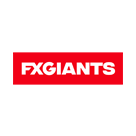 FXGiants (2020)
Leverage: up to 1:1000
Deposit: from 10 USD
Spreads:
FXGiants (2020)
Leverage: up to 1:1000
Deposit: from 10 USD
Spreads: 




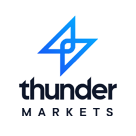 Thunder Markets (2022)
Leverage: up to 1:400
Deposit: from 500 USD
Spreads:
Thunder Markets (2022)
Leverage: up to 1:400
Deposit: from 500 USD
Spreads: 




 DBinvesting (2018)
Leverage: up to 1:1000
Deposit: from 100 USD
Spreads:
DBinvesting (2018)
Leverage: up to 1:1000
Deposit: from 100 USD
Spreads: 





 Fxoro (2012)
Leverage: up to 1:400 *
Deposit: from 100 USD
Spreads:
Fxoro (2012)
Leverage: up to 1:400 *
Deposit: from 100 USD
Spreads: 



 FXTrading.com (2014)
Leverage: up to 1:500
Deposit: From 50 USD
Spreads:
FXTrading.com (2014)
Leverage: up to 1:500
Deposit: From 50 USD
Spreads: 





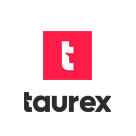 Taurex (2017)
Leverage: up to 1:1000 *
Deposit: from 100 USD
Spreads:
Taurex (2017)
Leverage: up to 1:1000 *
Deposit: from 100 USD
Spreads: 



 BelleoFX (2020)
Leverage: up to 1:500
Deposit: from 50 USD
Spreads:
BelleoFX (2020)
Leverage: up to 1:500
Deposit: from 50 USD
Spreads: 








 FXCentrum (2019)
Leverage: up to 1:1000
Deposit: from 10 USD
Spreads:
FXCentrum (2019)
Leverage: up to 1:1000
Deposit: from 10 USD
Spreads: 






 TenTrade (2020)
Leverage: up to 1:500
Deposit: from 50 USD
Spreads:
TenTrade (2020)
Leverage: up to 1:500
Deposit: from 50 USD
Spreads: 






 Exclusive Markets (2018)
Leverage: up to 1:3000
Deposit: from 200 USD
Spreads:
Exclusive Markets (2018)
Leverage: up to 1:3000
Deposit: from 200 USD
Spreads: 






 Ultima Markets (2016)
Leverage: up to 1:2000 *
Deposit: from 50 USD
Spreads:
Ultima Markets (2016)
Leverage: up to 1:2000 *
Deposit: from 50 USD
Spreads: 





 Lotas Capital (2017)
Leverage: up to 1:500
Deposit: from 100 USD
Spreads:
Lotas Capital (2017)
Leverage: up to 1:500
Deposit: from 100 USD
Spreads: 




 Fortrade (2014)
Leverage: up to 1:200 *
Deposit: from 100 USD
Spreads:
Fortrade (2014)
Leverage: up to 1:200 *
Deposit: from 100 USD
Spreads: 




 Banxso (2023)
Leverage: up to 1:200
Deposit: from 300 USD
Spreads:
Banxso (2023)
Leverage: up to 1:200
Deposit: from 300 USD
Spreads: 


 StarTrader (2013)
Leverage: up to 1:500
Deposit: from 50 USD
Spreads:
StarTrader (2013)
Leverage: up to 1:500
Deposit: from 50 USD
Spreads: 



 LiquidBrokers (2023)
Leverage: up to 1:30
Deposit: from 10 USD
Spreads:
LiquidBrokers (2023)
Leverage: up to 1:30
Deposit: from 10 USD
Spreads: 




 T4Trade (2021)
Leverage: up to 1:1000
Deposit: from 50 USD
Spreads:
T4Trade (2021)
Leverage: up to 1:1000
Deposit: from 50 USD
Spreads: 




 Investain (2025)
Leverage: up to 1:400
Deposit: from 500 USD
Spreads:
Investain (2025)
Leverage: up to 1:400
Deposit: from 500 USD
Spreads: 


These are forex brokers that offer Contracts for Difference (CFDs) on the various commodities that are either grown (agricultural commodities) or extracted from the ground (metals and energy commodities). Commodities serve as raw materials in many industries and that is what makes them highly valuable. Imagine a world without crude oil, staple crops like corn, cocoa or coffee, or even a world where there is no single piece of gold jewelry: that would be hard to imagine.
Unlike stock CFDs which feature assets that are listed across national exchanges and therefore differ from one country to another, commodity assets are the same everywhere. So whether they are listed in exchanges in London, Hong Kong or New York, the commodity assets are the same and will bear nearly similar pricing across exchanges. Once more, a question that may arise is whether there is any difference between the commodities listed on the platforms of commodity forex brokers and the commodities which are listed on their parent exchanges? Yes, differences do exist and some of them are presented below:
Commodity CFDs are unique in the sense that the assets being tracked by the CFD contracts are traded on various commodity exchanges around the world. Commodities have unique contract specifications which are discussed below.
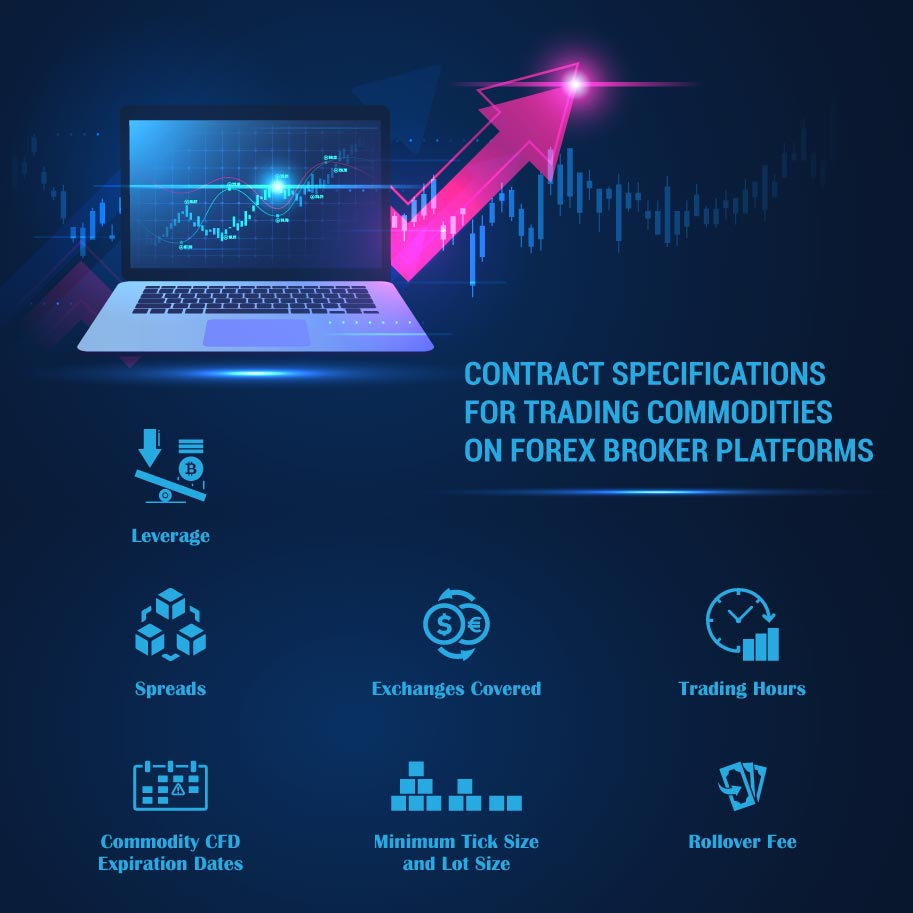
In 2018, the European Securities and Markets Authority (ESMA) reduced the leverage limit for trading of all assets on UK and EU forex brokerages. This effectively reduced the leverage cap for trading commodities on EU and UK platforms to 1:10. This leverage provision translates into a margin requirement of 10%. What this means is that if a trader buys 100 units of a commodity CFD on a forex platform located in the UK or EU, and this trade costs $10,000 to execute, the trader is expected to come up with a margin of $1,000 as collateral for the trade.
However, offshore brokers continue to offer high leverage for trading. The offshore commodity forex brokers listed on our website offer various leverage amounts and it is still possible to see commodities traded with leverage as high as 1:500. If the trader intends to purchase a commodity CFD contract that costs $10,000 to execute on an offshore platform using a leverage of 1:500 (i.e. 0.2% margin), then the trader would only need $20 to execute the trade.
Commodity CFDs tend to have varying spreads for each asset, and the spreads change as you move from one broker to the other. Therefore, traders need to be aware of the cost implications of trading certain CFDs on commodities. Your trading style will also dictate whether you should aim to cut your spreads to a barest minimum. For instance, high volume traders or scalpers will benefit hugely from reduction in spreads in the long run. There is already an article on this site which explained how much a trader can save over a year by using progressive brokers that can offer reduced spreads.
Unlike stock CFDs where each national exchange carries stocks that are unique to the country where such an exchange is found, commodities are the same all over the world. Therefore, the exchange that a commodity is listed really does not make much of a difference in pricing or timing.
Commodities are typically traded round-the-clock, except for specific break periods which occur within the trading hours from Monday to Friday. These break periods coincide with when the open outcry pits are shutting down and when the electronic platforms on the futures exchanges kick in. Furthermore, the break periods will differ as you move from one commodity class to another.
Another unique feature of commodities is that the futures contracts have expiration dates. Expirations could be weekly, monthly or quarterly. When these contracts expire, they are settled and rolled over to the next contract. When the settlement occurs, the differences in price between the expiring commodity futures contract (which is featured as CFD on a commodity broker platform), and the new/rolled over commodity futures contract, will either be credited to the trader's account as profit, or debited from the account as a loss. Therefore, the trader has the option of closing active positions on commodity CFDs before the rollover date, or allowing the platform to do this automatically. Traders will therefore be required to know when the commodity CFD they are trading is going to expire. This information is usually provided on the contract specifications page of each commodity forex broker.
The minimum tick size indicates the size in points of a single tick move in the price of the commodity CFD. Commodities have varying units of measurement and the size of 1 lot will differ as you move from one commodity to another. For instance, Markets.com features a Brent Oil Standard Lot as equivalent to 1,000 units, while a Standard Lot for cocoa is equivalent to 100 units. For natural gas, silver and sugar, the Standard Lot is 10,000 units. Again, your broker will provide you with these measurements in the contract specification table.
Rollover fees apply if a position on a commodity CFD is held open beyond the trading day in which the position became active. Traders who hold Islamic-compliant accounts are exempted from paying this fee.